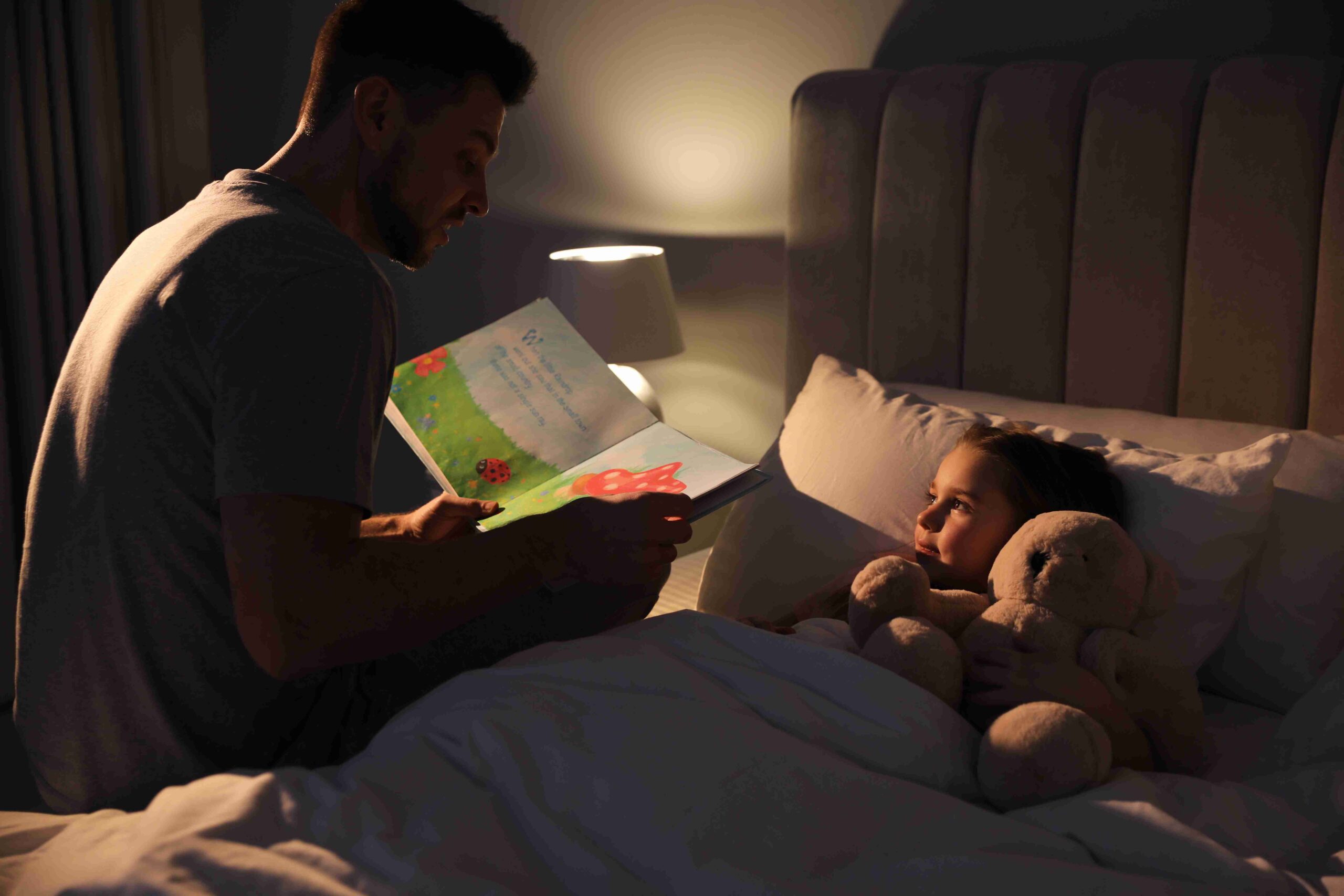It may be no surprise to you that sleep is as important as nutrition and exercise. Sleep experts have recently been able to show that sleep allows brain cells to clean up each night, getting rid of disease-causing toxins. In addition, ensuring your child has enough sleep may help children fight obesity, avoid colds, and succeed in school. Likewise, it’s important to help your child get a good night’s sleep as research has shown that when kids get the sleep they need, they may have a lower risk of developing diabetes as well as fewer learning problems and attention issues.
The amount of sleep your child needs depends on their age. Typically the younger a child is, the more sleep they need and newborns need as much as 18 hours per day. If you want to know how much sleep your child needs for their age, check out our previous blog on How Much Sleep Does Your Child Really Need?
We often get asked, why won’t my child sleep through the night? Here are 5 suggestions to help your child get a good night’s sleep:
1. Manage Their Bedtime Routine
Try to create a consistent routine for bedtime each night to help your child get a good night’s sleep. This routine should last less than an hour including bath time. For children under the age of 10, it is recommended that their bedtime is before 9 pm as studies have shown that children who go to bed after 9 p.m. typically take longer to fall asleep and wake up more frequently during the night. If you want to know how to create a positive bedtime routine, check out our previous blog here: How to Manage Your Child’s Bedtime.
2. Create the Right Environment to Help your Child get a Good Night’s Sleep
The light and temperature of the room a child sleeps in at night time can make a big difference in their ability to sleep. Try to maintain the same temperature and level of light in your child’s room at night time to help your child get a good night’s sleep. Your body’s biological mechanisms make it that the healthiest way to sleep is in darkness. Hormones that are required to make your body sleep can be disrupted by light pollution. This includes night lights or bright clocks. If your children are afraid of the dark, try putting the night light outside of their bedroom and turn it off once they’re asleep. Blackout curtains may assist in reducing the morning sun from waking them up too early in the morning.
Allergens that cause itching may also be a reason why some children have trouble falling asleep or wake up frequently during the night. Low allergen organic cotton pyjamas and sheets may help as well as using sensitive laundry detergent. Have your child tested for allergies if you think that allergies may be a concern.
3. Unplug
Just two hours of screen time before bed is enough to reduce levels of melatonin, a chemical that occurs naturally at night to tell the body to sleep. Research by pediatricians found that just one hour of video games before bed showed significant sleep disruption for children. Therefore, eliminate screen time after dinner time. Instead, take the time to read with your child! Reading bedtime stories is a fantastic way to prepare your child for sleep. Not only is it helping them learn but it has an added bonus of helping them calm down and relax. That special time you take reading to them also helps with bonding and this further aids relaxation
4. Nutrition to Help your Child get a Good Night’s Sleep
Nutrition plays a big part in the ability to sleep. Some parents may try to add extra fruit servings before bed with their child’s best interest in mind. However, this may actually be adding too much energy before bed. If your child is hungry, foods that combine protein and carbs such as oatmeal with milk form amino acids that act like tryptophan. This is the chemical that makes you feel sleepy. Other foods that aid sleep include yogurt, bananas, poultry, eggs and tuna. It goes without saying, avoid sugary foods as a bedtime snack.
5. Make Bedtime a Special Time
Lastly, making bedtime feel like a special time makes children look forward to that time each night. Ensuring predictable bedtime routine that includes cuddling up with you for a bedtime story and a chat is likely to calm your child and help them drift off to sleep more easily. When children feel loved they tend to feel more relaxed. Enjoy this special time together and create the positive bedtime routine that you both look forward to.
Childventures Early Learning Academy has developed an excellent reputation within the childcare field as a leader in child development. To learn more about our unique child care programs, click here!


